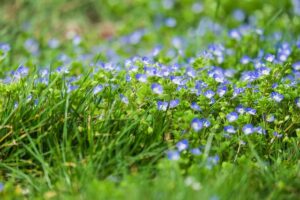
Delta-9 tetrahydrocannabinolic acid (THCA) flower, the raw form of cannabis, is gaining attention for its potential to enhance mental clarity without causing a psychoactive high. THCA, which converts into THC upon heating, interacts with the endocannabinoid system, potentially improving focus and cognition by engaging CB1 receptors in the brain. Early research indicates that THCA may encourage neurogenesis and have anti-inflammatory effects that can benefit cognitive health. Users report anecdotal benefits such as improved concentration and mental acuity. The therapeutic potential of THCA flower for mental clarity is promising, though further scientific investigation is needed to understand its full scope of effects and any possible side effects. It's important for individuals to start with low doses and consider their personal health history and tolerance when incorporating THCA flower into their wellness regimen, consulting healthcare professionals as necessary. This cautious approach can help users safely explore the cognitive benefits of THCA flower while minimizing potential adverse effects.
Exploring the multifaceted effects of THCA flower on mental clarity, this article delves into the science and potential side effects of this cannabinoid-rich compound. From its role in the endocannabinoid system to its neurological implications, we examine how THCA flower can impact cognitive function and overall well-being. As a natural alternative for enhancing mental focus, understanding its dosage, interaction with medications, and safety is crucial for those considering it as part of their health routine. We also navigate the legal considerations and provide best practices for sourcing quality THCA flower. Join us as we unravel the intricacies of THCA flower and its relation to mental clarity, ensuring a comprehensive understanding of both its benefits and potential side effects.
- Unveiling THCA Flower and Its Impact on Mental Clarity
- What is THCA Flower? A Primer on Tetrahydrocannabinolic Acid
- The Science Behind THCA's Effects on Cognitive Function
- Potential Side Effects of Using THCA Flower
- Understanding the Dosage and Tolerance with THCA Flower
Unveiling THCA Flower and Its Impact on Mental Clarity
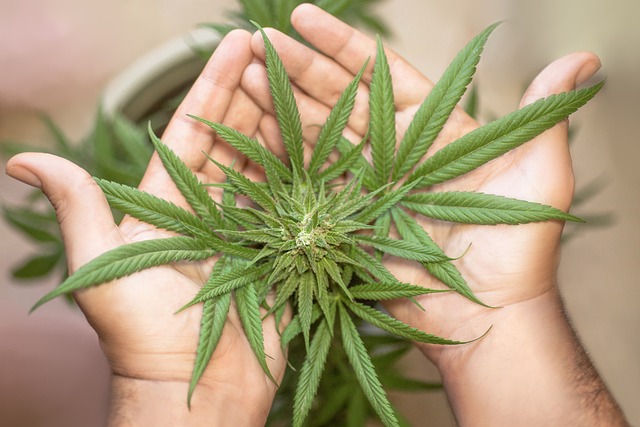
Delta-9 tetrahydrocannabinolic acid (THCA) flower, the raw form of cannabis before heat-activation converts it to THC, has garnered attention for its potential effects on mental clarity. THCA, found abundantly in raw cannabis and hemp plants, is non-psychoactive; however, its interaction with the body’s endocannabinoid system can influence cognitive functions. Advocates suggest that consuming THCA flower may offer a clear-headed focus due to its affinity for the CB1 receptors in the brain, which are known to regulate mood and cognition. Preliminary research indicates that THCA may support mental clarity by promoting neurogenesis, the creation of new neurons, potentially enhancing learning and memory. Additionally, its anti-inflammatory properties might alleviate stress-related inflammation in the brain, contributing to a sharper and more focused mindset. Users anecdotally report that incorporating THCA flower into their routine can lead to improved concentration and mental acuity, making it a compelling subject for further scientific investigation.
What is THCA Flower? A Primer on Tetrahydrocannabinolic Acid
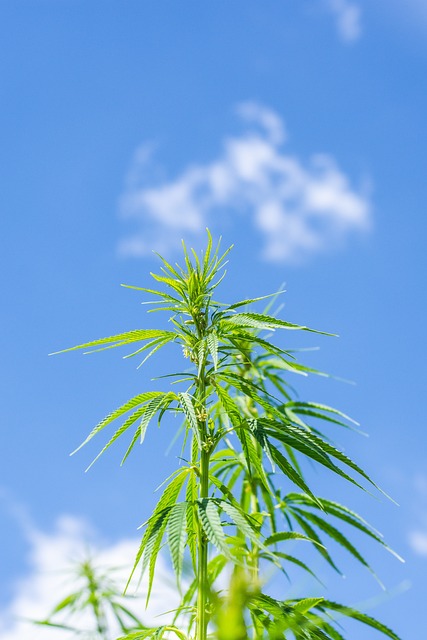
THCA, or tetrahydrocannabinolic acid, is a non-psychoactive cannabinoid found naturally in the cannabis plant, which, when exposed to heat or light, converts into the more well-known compound THC. The THCA flower refers to the raw cannabis flower that contains this cannabinoid in abundance before it has been processed or decarboxylated. As a precursor to THC, THCA is gaining attention for its potential therapeutic benefits and its influence on mental clarity.
Research suggests that THCA interacts with the body’s endocannabinoid system, which regulates various functions and processes including mood, appetite, pain sensation, and memory. Users who consume THCA flower for mental clarity often report a clear-headed focus without the psychoactive ‘high’ associated with its decarboxylated form THC. The compound is believed to inhibit the enzyme fatty acid amide hydrolase (FAAH), which breaks down anandamide, a neurotransmitter related to feelings of well-being and happiness. This interaction may contribute to the reported cognitive enhancements, including improved mental clarity and concentration. Additionally, THCA is also being explored for its potential anti-inflammatory, antioxidant, and neuroprotective properties, further adding to its appeal as a natural supplement for maintaining mental acuity.
The Science Behind THCA's Effects on Cognitive Function
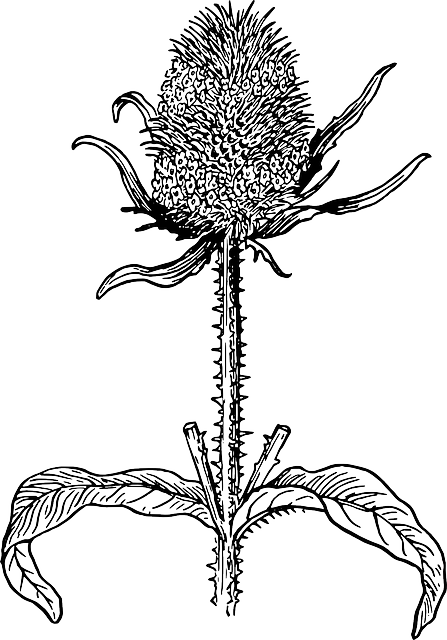
The non-psychoactive cannabinoid THCA, or tetrahydrocannabinolic acid, found abundantly in raw cannabis flowers, has garnered attention for its potential effects on cognitive function. Preliminary research suggests that THCA interacts with the body’s endocannabinoid system, a complex cell-signaling system responsible for maintaining physiological and psychological equilibrium. This interaction is believed to influence various aspects of brain health, including memory, focus, and overall mental clarity. Studies indicate that THCA may stimulate the CB1 and CB2 receptors, which can lead to improved cognitive performance. The precise mechanisms underlying these effects are still being explored, but they offer a promising perspective on the use of THCA flower for enhancing mental clarity without the psychoactive effects associated with its decarboxylated form, THC.
Furthermore, anecdotal evidence and emerging scientific studies suggest that THCA may possess neuroprotective properties. These potential benefits are attributed to its ability to promote neurogenesis, the creation of new neurons, and its anti-inflammatory effects, which could be beneficial in combating age-related cognitive decline or supporting recovery from neurological conditions. While further research is necessary to fully understand the scope of THCA’s impact on cognitive function, its potential role in maintaining mental sharpness and promoting overall brain health positions it as a subject of considerable scientific interest.
Potential Side Effects of Using THCA Flower
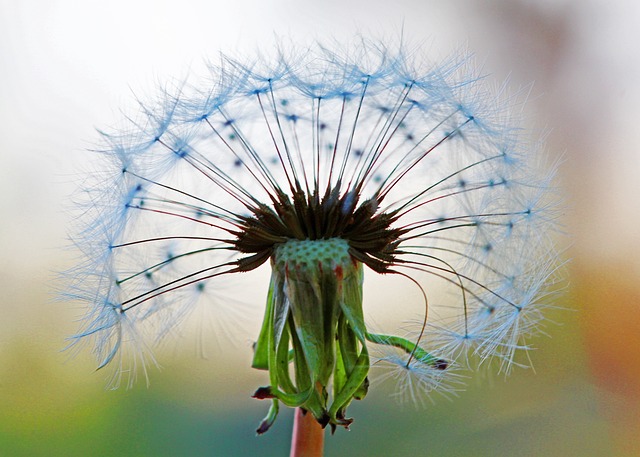
THCA flower, which is the raw form of cannabis that contains tetrahydrocannabinolic acid, has garnered attention for its potential effects on mental clarity. While research on THCA is ongoing, anecdotal reports and early studies suggest that it may offer cognitive benefits without the psychoactive high associated with its decarboxylated form, THC. However, as with any cannabinoid, users may experience side effects when using THCA flower. Common side effects include dry mouth and red eyes, which are typically mild and temporary. Some individuals might also report dizziness or anxiety, particularly at higher doses or in individuals sensitive to cannabis compounds. It is important for users to start with small doses to gauge their individual response and to consider their personal health history before use. Additionally, because the effects of THCA can vary based on factors like strain potency, individual metabolism, and tolerance, it’s advisable to approach its consumption with caution and to consult with a healthcare professional if you have any concerns or pre-existing conditions. Users should also be aware that while THCA flower is often touted for its potential mental clarity benefits, more research is needed to fully understand its effects and side effects.
Understanding the Dosage and Tolerance with THCA Flower

When integrating THCA flower into one’s wellness routine, a nuanced approach to dosage and individual tolerance is paramount for optimizing mental clarity. THCA, or tetrahydrocannabinolic acid, is the precursor to THC and possesses unique properties that can influence cognitive functions. It’s important for users to start with a low dose of THCA flower to gauge its effects, as overconsumption can lead to unwanted psychoactive side effects. The body’s response to cannabinoids can vary significantly among individuals, influenced by factors such as metabolism, body chemistry, and personal sensitivity. Therefore, it is advisable to begin with small amounts, typically ranging from 1mg to 5mg, and observe how one feels over a period of time. This gradual introduction allows for a better understanding of the substance’s impact on mental acuity and overall well-being. Users should pay close attention to their experiences and adjust their intake accordingly, aiming for a balance that promotes focus and mental clarity without exceeding their threshold for comfort. As with any dietary supplement or medication, consistency and moderation are key factors in achieving the desired effects while minimizing potential side effects. It’s also recommended to consult with a healthcare provider before incorporating THCA flower into one’s regimen, especially if one has pre-existing health conditions or takes other medications. By carefully considering dosage and individual tolerance, users can safely explore the benefits of THCA flower for mental clarity.
In conclusion, the exploration into the effects of THCA flower on mental clarity has yielded insightful findings. As detailed in ‘Unveiling THCA Flower and Its Impact on Mental Clarity’ and ‘The Science Behind THCA’s Effects on Cognitive Function,’ this cannabinoid precursor holds potential for enhancing focus and promoting clearer thought processes. However, it is imperative to approach its use with caution, as outlined in ‘Potential Side Effects of Using THCA Flower.’ These effects can range from mild discomfort to more significant impacts, underscoring the importance of understanding one’s dosage and tolerance as discussed in ‘Understanding the Dosage and Tolerance with THCA Flower.’ Ultimately, while THCA flower for mental clarity may offer benefits, a balanced perspective and informed use are key. Users should consult with healthcare professionals to navigate its effects responsibly, ensuring a safe and positive experience.

